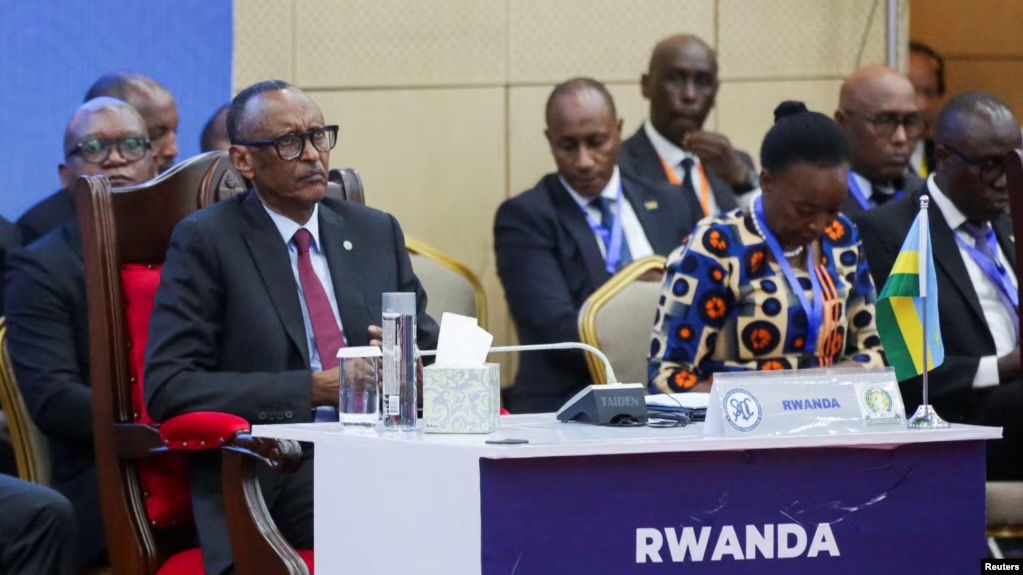Urgent Call for Ceasefire in Eastern Congo
A high-level summit of African leaders has called for an “immediate and unconditional ceasefire” in the Democratic Republic of Congo (DRC). The decision came after days of intense fighting in the eastern part of the country, where the M23 rebel group has captured large areas. The conflict has left thousands dead and forced many more to flee their homes.
The summit, held in Tanzania, brought together leaders from the East African Community (EAC) and the Southern African Development Community (SADC). Rwandan President Paul Kagame attended in person, while DRC President Felix Tshisekedi joined via video call. In a joint statement, the leaders urged military officials from both sides to meet within five days to plan a ceasefire and allow humanitarian aid to reach those affected.
A Nation in Crisis
The M23 rebel group has been advancing rapidly, taking control of Goma, the capital of North Kivu province, last week. The group is now moving towards South Kivu, where they are closing in on the town of Kavumu, a strategic location with an airport that is critical for military supplies.
As fighting spreads, panic is growing in Bukavu, the provincial capital of South Kivu. People are fleeing in large numbers, fearing an escalation in violence. Some residents are trying to cross into Rwanda, but reports suggest that the border is overcrowded, with long lines and chaotic scenes.
The Role of Rwanda in the Conflict
The DRC government has accused Rwanda of supporting the M23 rebels, an allegation that Rwanda denies. However, a United Nations (UN) report last year found evidence that around 4,000 Rwandan troops were present in eastern Congo, involved in both combat and the smuggling of gold and coltan, a valuable mineral used in electronics.
Rwanda, in turn, blames the Democratic Forces for the Liberation of Rwanda (FDLR), an armed group in eastern Congo. The FDLR was formed by Hutu militants responsible for the 1994 Rwandan genocide, and Rwanda considers it a serious threat to its security. Despite repeated peace talks and ceasefire agreements, tensions between the two nations continue to escalate.
War Crimes and Human Rights Violations
The ongoing violence has taken a horrific toll on civilians. UN human rights chief Volker Turk has raised alarms over reports of mass killings, rape, and sexual slavery in the conflict zones.
Since M23 took control of Goma on January 26, at least 3,000 people have been killed, and nearly 3,000 others injured. However, experts warn that the real numbers could be much higher as the situation remains chaotic.
The UN is currently verifying multiple allegations of gang rape, forced slavery, and abuse against women and children. The crisis has drawn comparisons to past conflicts in Congo, where armed groups have used sexual violence as a weapon of war.
A Growing Regional Conflict
The M23 group has stated its intention to march towards Kinshasa, the capital of the DRC, despite the city being 1,600 kilometers away. The DRC’s military, known for its poor training and corruption, has struggled to push back the rebels. Meanwhile, South Africa, Burundi, and Malawi have sent troops to support the Congolese government, raising fears of a wider regional war. The African Union and international organizations have called for an urgent diplomatic solution to prevent further bloodshed.
What Happens Next?
The coming days will be critical in determining whether the ceasefire agreement can be enforced. If military leaders fail to reach a deal within the five-day deadline, the fighting could continue, worsening the humanitarian crisis.
Meanwhile, thousands of civilians remain trapped in conflict zones, with limited access to food, water, and medical aid. The world watches as Congo stands on the edge of a deeper crisis. Will peace efforts succeed, or will the conflict spiral into an even deadlier war? Only time will tell.

